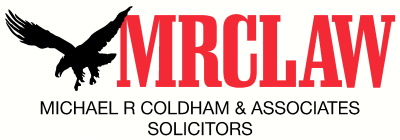Dispute Resolution & Litigation
An individual or business may find themselves involved in a legal dispute and will need to consider options to resolve the matter, whether through compromise or litigation. Most disputes can be resolved using an alternative dispute resolution (ADR) process, rather than going to court.
While ADR processes can offer several advantages over litigation, sometimes, court may be the only (or final) option one has to assert their legal rights or to defend a matter. We are experienced dispute resolution and litigation lawyers in Victoria and can deal with a range of matters, including:
- contract disputes / breach of contract
- debt recovery / insolvency disputes
- partnership disputes
- corporate / director / shareholder disputes
- disputes concerning mergers and acquisitions
- building and property disputes
- leasing disputes
- employment and workplace disputes
- consumer law matters
What is Alternative Dispute Resolution?
Alternative Dispute Resolution (ADR) includes processes such as negotiations, informal settlement conferences, mediation, and conciliation. These processes are less formal than going to court and may provide more flexible outcomes that save time and money. In some cases, ADR can help preserve relationships that can often be destroyed through the adversarial nature of court litigation.
Subject to the availability of any third parties involved (i.e., mediators or conciliators), the parties can determine a mutually agreeable date for the process, rather than navigating court systems and waiting for a final hearing.
Whether an ADR process is suitable may depend on the type of problem you have. If you can negotiate with the other party to resolve the dispute, you may find a solution that a court is unable to order.
Sometimes, you may have to participate in an ADR process because a contract requires that a matter first go to mediation or arbitration before it can go to court. Similarly, it is common for parties to court proceedings to be directed to attend a mediation to try to resolve a dispute before a matter is allowed to be heard by a court.
The Victorian Civil and Administrative Tribunal
The Victorian Civil and Administrative Tribunal (VCAT) resolves certain legal disputes and cases in Victoria, is less formal than a court, and hears and decides cases according to the law. VCAT’s main purpose is to provide an accessible, efficient, and low-cost tribunal which focuses on the handling and mediation of disputes.
VCAT orders are treated like court orders. VCAT can hear a range of disputes, including those about goods and services, residential tenancies, building and construction, equal opportunity, owners’ corporations, and planning.
You can fill out an online application where you will be allocated a conciliation or hearing date. Matters such as building disputes will require parties to settle their dispute through conciliation with a tribunal member. If the parties fail to reach an agreement, they will then be referred to a hearing. You do not need legal representation at VCAT, however if you wish to have a lawyer represent you, you need to notify the other party beforehand.
What is Litigation?
Litigation means commencing legal proceedings to resolve a disputed matter with assistance from a court. When two or more parties are unable to come to an agreement regarding their purported legal rights and obligations, the matter will be decided by a Judge or Magistrate. The type and value of disputes that proceed to litigation can vary significantly and accordingly, different courts (and tribunals) have been established based on specific categories of disputes and the monetary value of a claim.
Trial proceedings can be lengthy and complex. Typically, the stages involve commencing proceedings – pleadings (where the dispute is described by the plaintiff and defended by the defendant); discovery (disclosure of documents by both sides); trial (where the judge will hear the testimony of witnesses and make a ruling in the dispute); settlement, and appeal (if relevant).
If you are involved in court proceedings, it is important to understand the processes, the range of remedies that may be awarded, the likelihood of winning your case or successfully defending a matter, and the relevant cost implications.
Our approach is to first attempt to resolve a dispute through negotiation and, only when this is not successful, prepare a case carefully for litigation. This will involve a comprehensive review of the facts and the evidence and a reasonable assessment of the possible outcomes so you can make an informed decision.
If you need assistance, contact one of our lawyers at of****@********om.au or call 03 5747 8251 for expert legal advice.

